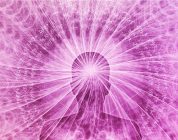There are some dreams you remember for all the wrong reasons. Some people have a horrific nightmare that ends up with them suddenly waking up in a sweat and checking all the doors in their home.
This happens to everyone sometimes but chronic nightmares could mean there is an underlying issue that needs investigation. Nightmares not only could be related to mental or emotional problems but could also be an indication of physical health issues which could be quite serious.
Here are 17 possible reasons for your chronic nightmares:
- There is a mental health issue.
The most common mental health issues associated with chronic nightmares are anxiety and depression. According to statistics, 17.1 percent of those with clinical anxiety have regular nightmares while 11. 4 percent of those with diagnosed depression report having bad dreams.
There are other less common mental disorders associated with bad dreams including panic disorder, dissociative disorder, schizophrenia, and borderline personality disorder. All of these relate to how you deal with stress and chronic thoughts, which tend to have their reign in your sleep.
- You could have underlying trauma.
Many people go through things in their lives, particularly when they are younger, that they try to put behind them as adults. You try to move on and forget. The problem with that is you never work through the process required to heal from the trauma.
The trauma could be an abusive home, a parent dying young, or a tragic accident. Several things can be classified as trauma because of how it affected you at the time. Scientists are focusing on nightmares as a signal of post-traumatic stress disorder more every year. That’s because findings, like those of a University of Pittsburgh School of Medicine study, show that reoccurring bad dreams are prevalent in 90 percent of PTSD patients.
Another Behavioral Sleep Medicine study showed those eventually diagnosed with PTSD could be prone to the condition because 60 percent stated they had nightmares before their trauma.
- You could have side effects from medications.
Medications are used for everything nowadays and all have various side effects. Side effects affect everyone differently and that could include bad dreams. Also, be aware some medications may not interact well and that could produce side effects, like bad dreams, not even listed on the bottle.
Check for possible side effects of all your medications and ask your pharmacists about interaction. Most pharmacies can run a test on all your medications to cite any possible interaction side effects. It’s good information to have anyway.
- You eat too much at night.
Most doctors tell people not to eat after 7 p.m. because a lack of physical activity at night tends to lead to weight gain. However, eating late can also lead to nightmares.
A study out of the Canadian Center for Advanced Research in Sleep Medicine states that around 17.8 of college undergraduates believed their bad dreams was because of what they were eating. That is backed up by the National Sleep Foundation, which states that eating before bed boosts metabolism and sets your brain for more activity. This increased brain activity leads to more dreams that are more intense and active.
- You need more, better sleep.
Strangely, nightmares could be due to a lack of sleep, but the American Academy of Sleep Medicine states that chronic bad dreams occur among 17.1 percent of those with regular insomnia.
A lack of good sleep can lead to an overactive brain when you do sleep and that can make your dreams vivid and scary.
- There are breathing issues.
A lack of oxygen can do many things to your body. Sleep apnea can affect your heart and even lead to heart attacks. Reduced oxygen can also affect your brain and how it works. A Sleep Medicine Journal study showed those with severe sleep apnea also suffered from nightmares.
- You have other issues with sleep.
This may seem like an obvious reason, but many don’t realize there are several sleep-related issues besides just not being able to sleep. Issues like narcolepsy, sleep paralysis, and restless leg syndrome can affect your sleep, which all can affect your dreams.
There is also a condition called actual nightmare disorder, which affects four percent of adults and many children under 10 years old. Those with this have frequent nightmares, threatening dreams and wake up with intense alertness.
- You watch too many scary movies.
Sure, horror flicks are fun but remember that what you take into your brain will produce the same coming out. An International Association for the Study of Dreams revealed those who watched violent or horror movies before bed tends to have more violent dreams.
- You have lactose intolerance.
Believe it or not, consuming dairy before bed could lead to nightmares. A study from the Canadian Center for Advanced Research in Sleep Medicine showed a link. The belief is the connection is with lactose intolerance sine 65 percent of Americans have some type of reduced ability to comfortably digest lactose products.
- You need to check for sickness.
A developing illness or a fever could account for sudden, frequent nightmares. Check your temperature. A part of your brain called the amygdala is connected with emotions or terror and it can go into hyper mode if you have a fever.
- A life change is coming.
Some things happen in life, such as a marriage, a new baby, or a move that can bring a lot of stress and anxiety. Additional stress can bring on nightmares according to the study at Oxford Sleep and Circadian Neuroscience Institute.
- There is substance abuse.
Things like alcohol, marijuana, and illegal drugs make havoc with deep REM sleep. So, it’s no surprise that a student from the Alcohol and Drug Recovery Center showed those addicted to substances are up to 10 times more likely to have sleep disorders. These substances result in the body going without sleep, which causes sleep deprivation and that can mean nightmares.
- You’re in withdrawal.
As substance abuse can be linked to nightmares, quitting cold turkey can also cause horrific dreams. Those who stop immediately can suffer Alcohol Withdrawal Syndrome (AWS) and one of the symptoms is nightmares. This can begin two to three days after stopping your habit and go on for several weeks until your body readjusts to living without the substance.
- You are genetically prone to major health issues.
Those who have nightmares may develop issues like Parkinson’s Disease, dementia, or Alzheimer’s later in life. The link is because those with nightmares could also have something called REM sleep behavior disorder (RBD). This is where people physically move as they are in their dreams. This could result in an excessive arm or leg movements, even to the point of punching a pillow or swatting the air.
Doctors believe the part of the brain controlling REM sleep is damaged in RBD patients and that damage spreads to other parts of the brain resulting in disease.
It is serious. A neurologist out of the University of Toronto discovered that around 80 percent of RBD patients developed a neurological disease.
- There is a heart problem.
One of the issues that nightmares can point to is heart health problems. A study done in 2003 by the Netherlands Journal of Medicine showed those with regular nightmares also had irregular heartbeats and spasmodic chest pain.
Nightmares could also lead to future heart problems. That’s because heart rates and blood pressures rise with horrific dreams. This wears on the heart and could lead to health issues over time.
- There is chronic pain.
Pain can cause bad dreams. That is, in part, because of ongoing pain sensations. The other reason for the link is those who have chronic pain get less sleep than those who don’t. The Open Pain Journal published a study showing those with back pain reported more pain sensation dreams. Another study by the Sleep Research Society showed that 30 percent of burn patients had pain sensation dreams.
- You may have mental issues.
Nightmares can be a symptom of mental health disorders. That also means they can be connected with thoughts of suicide and even suicide attempts. The link stems from hopelessness, which is a major player in suicide. A Psychiatry Research Journal indicated those suffering from extreme hopelessness also had regular nightmares.




